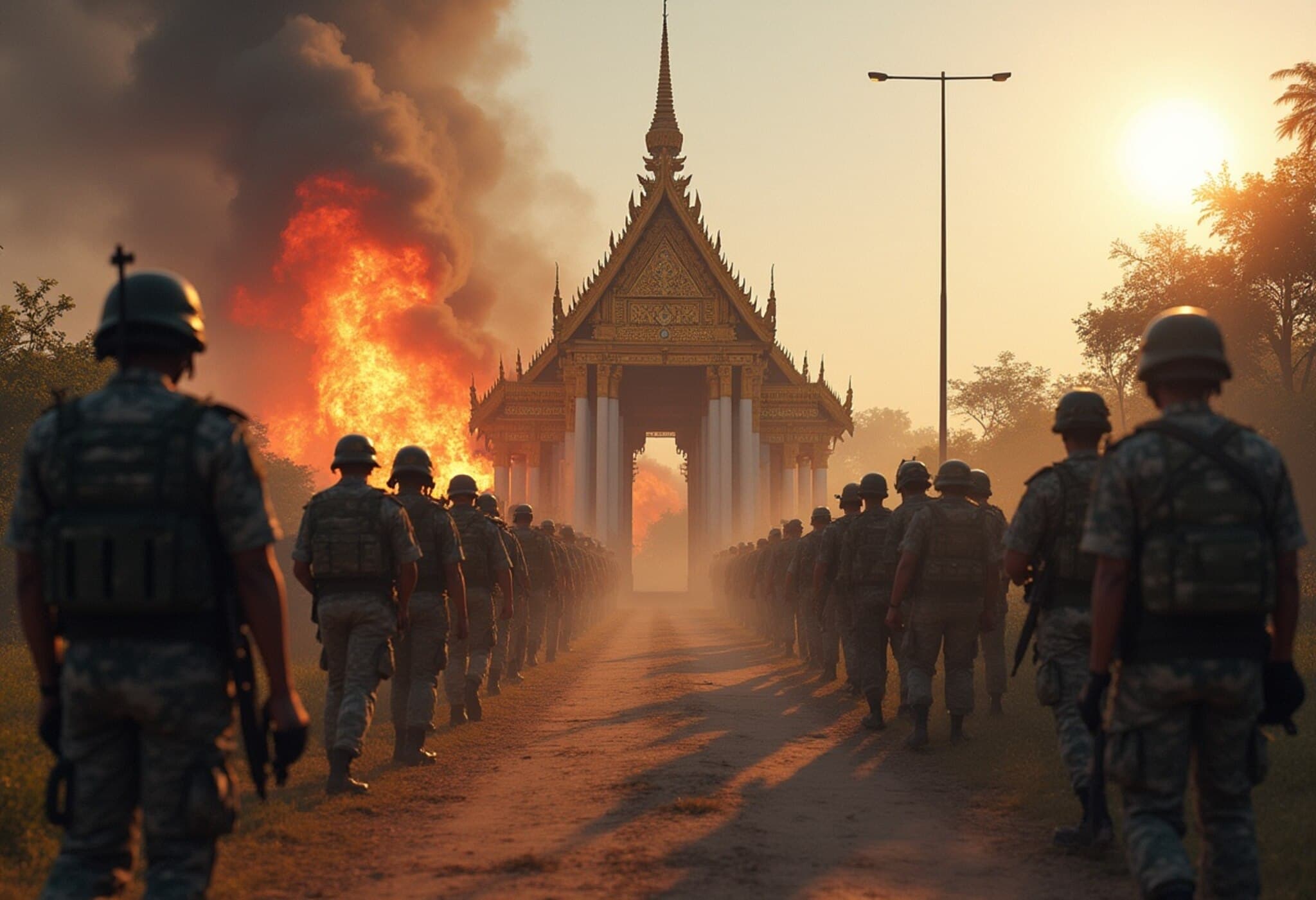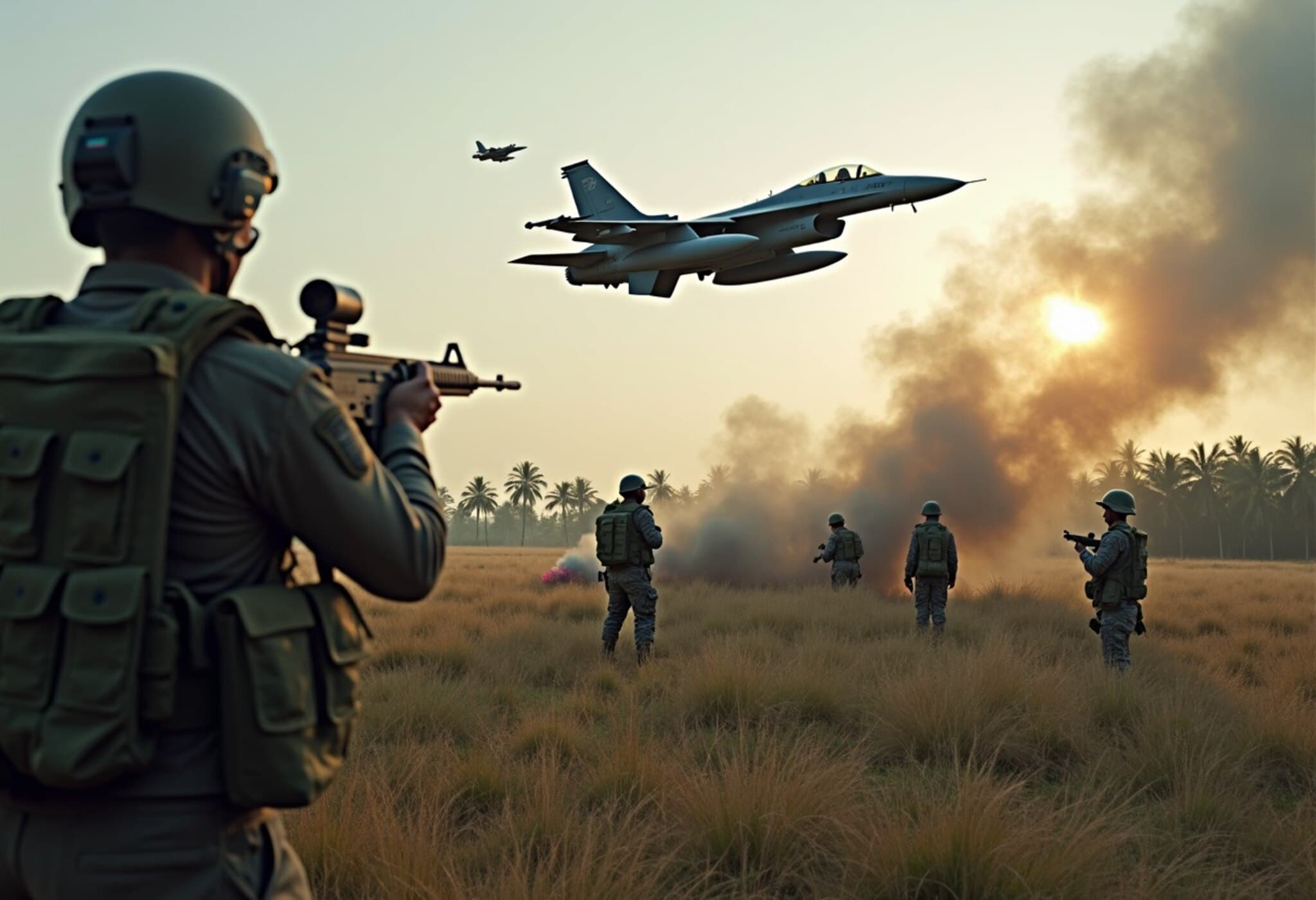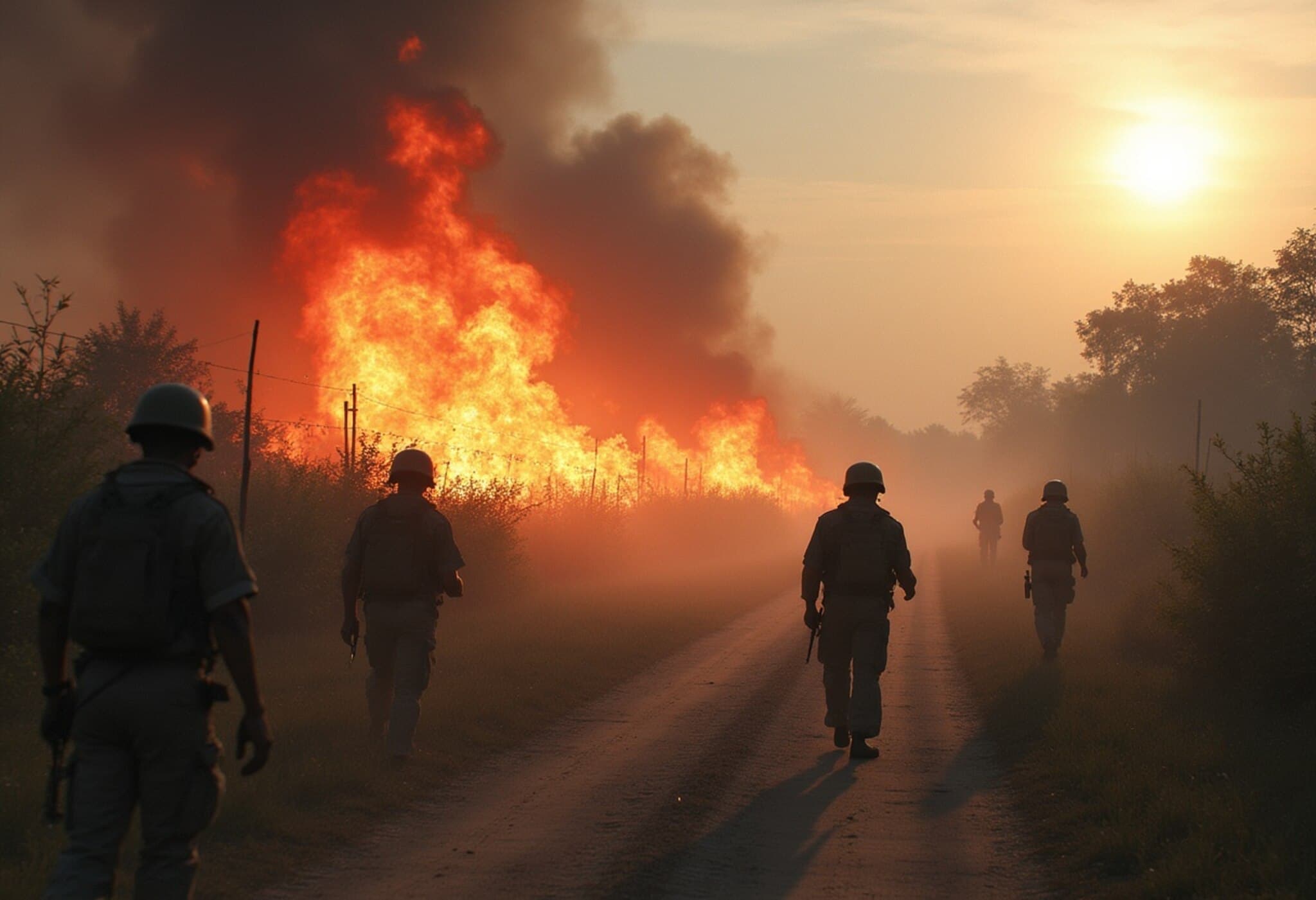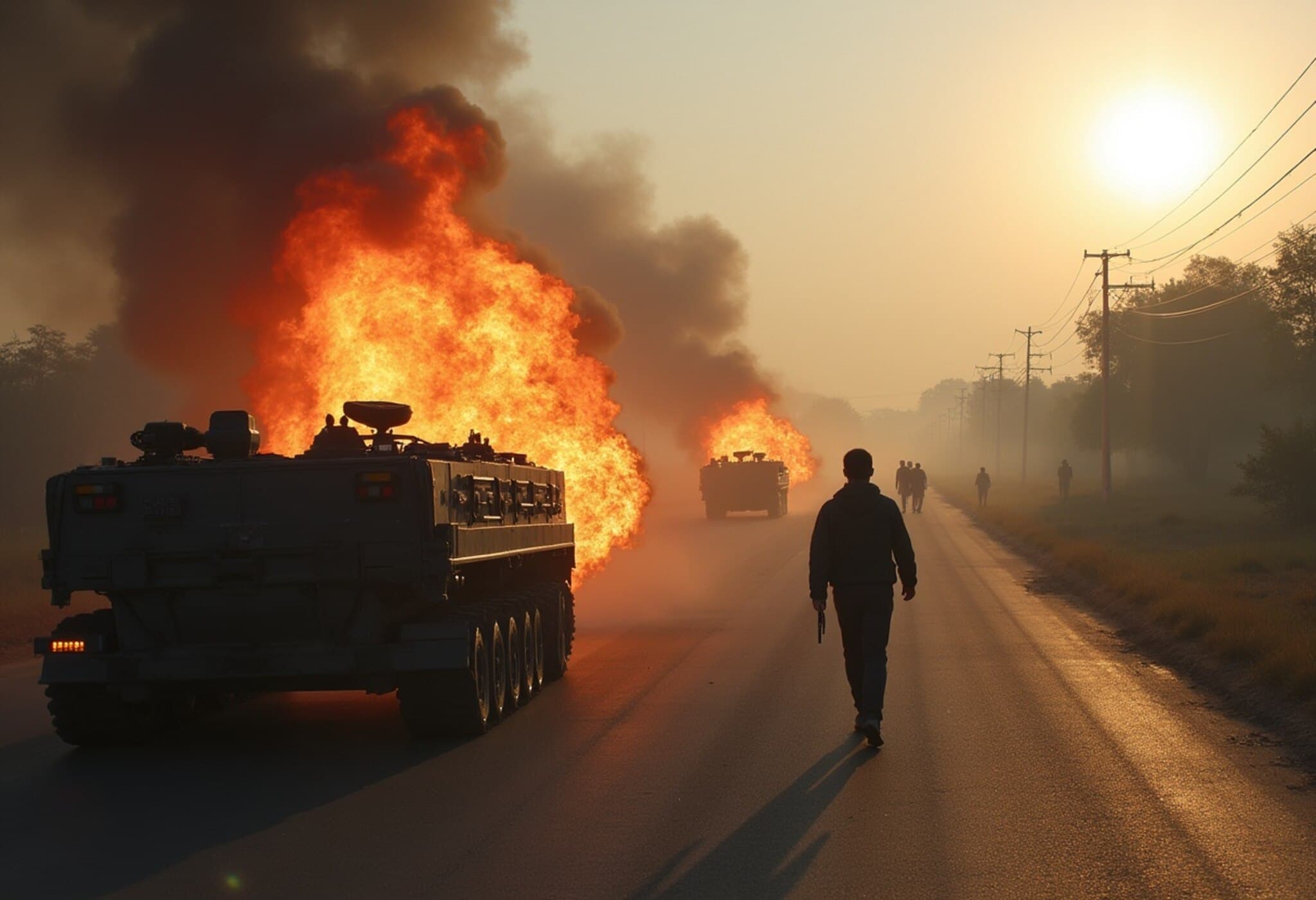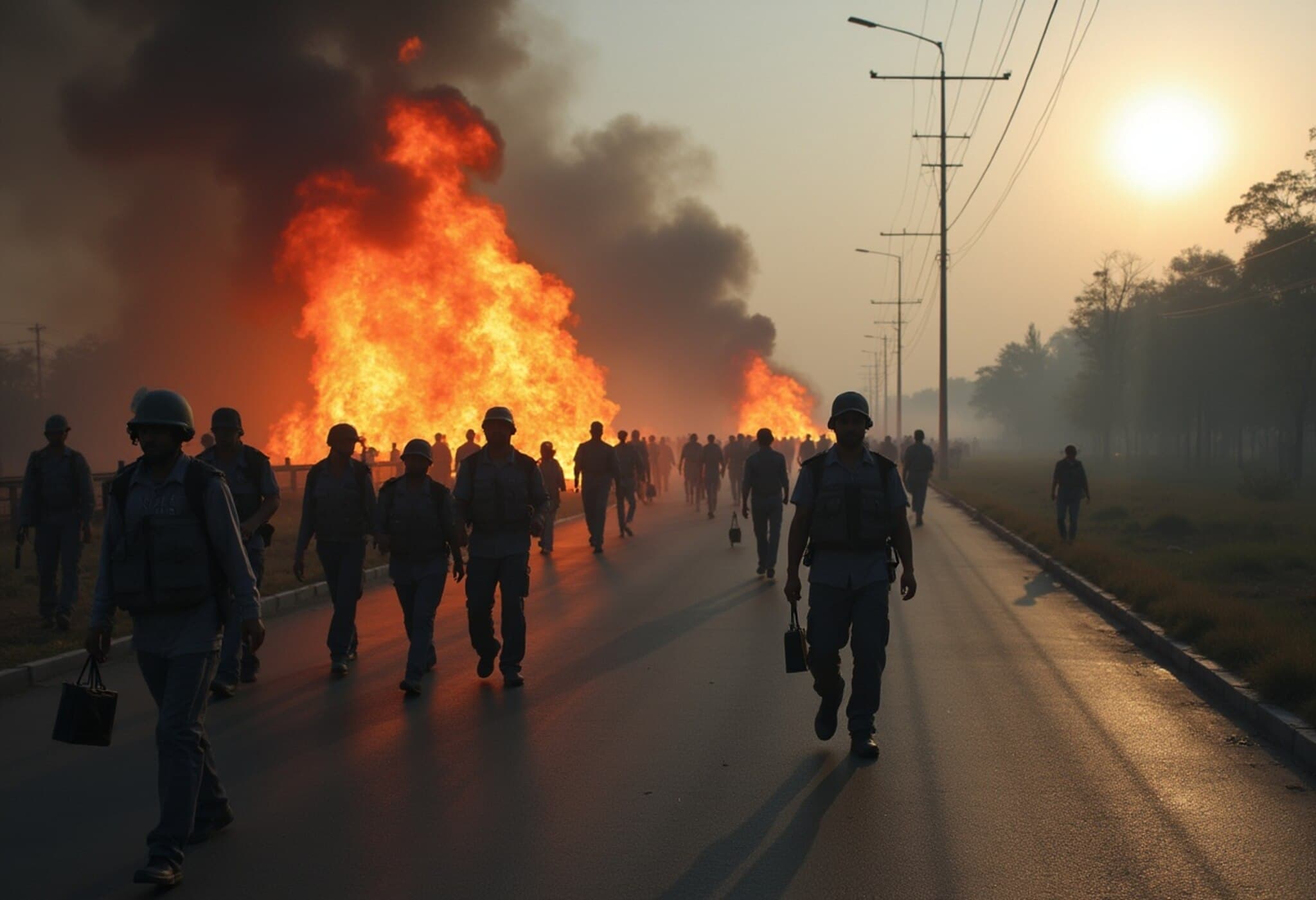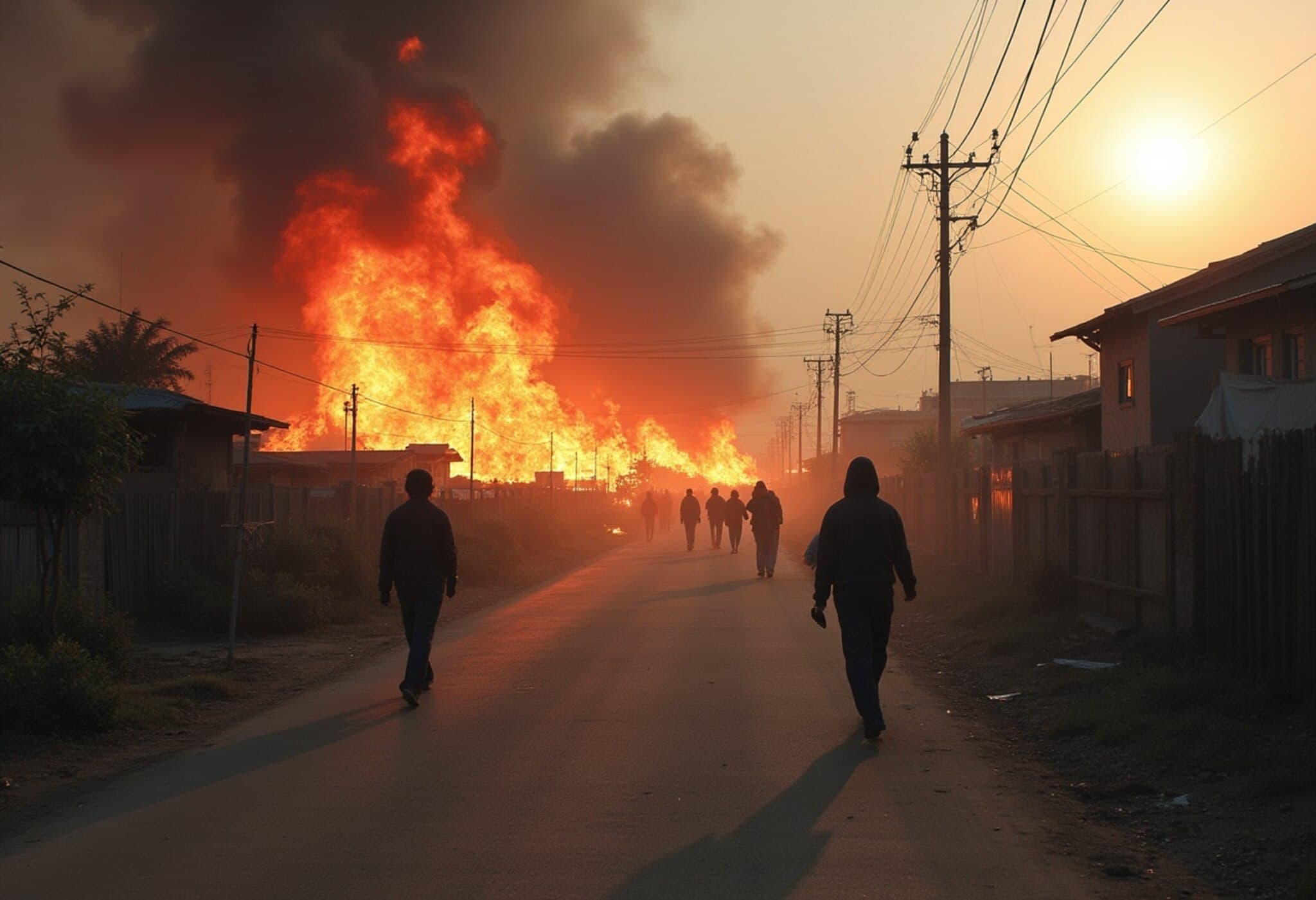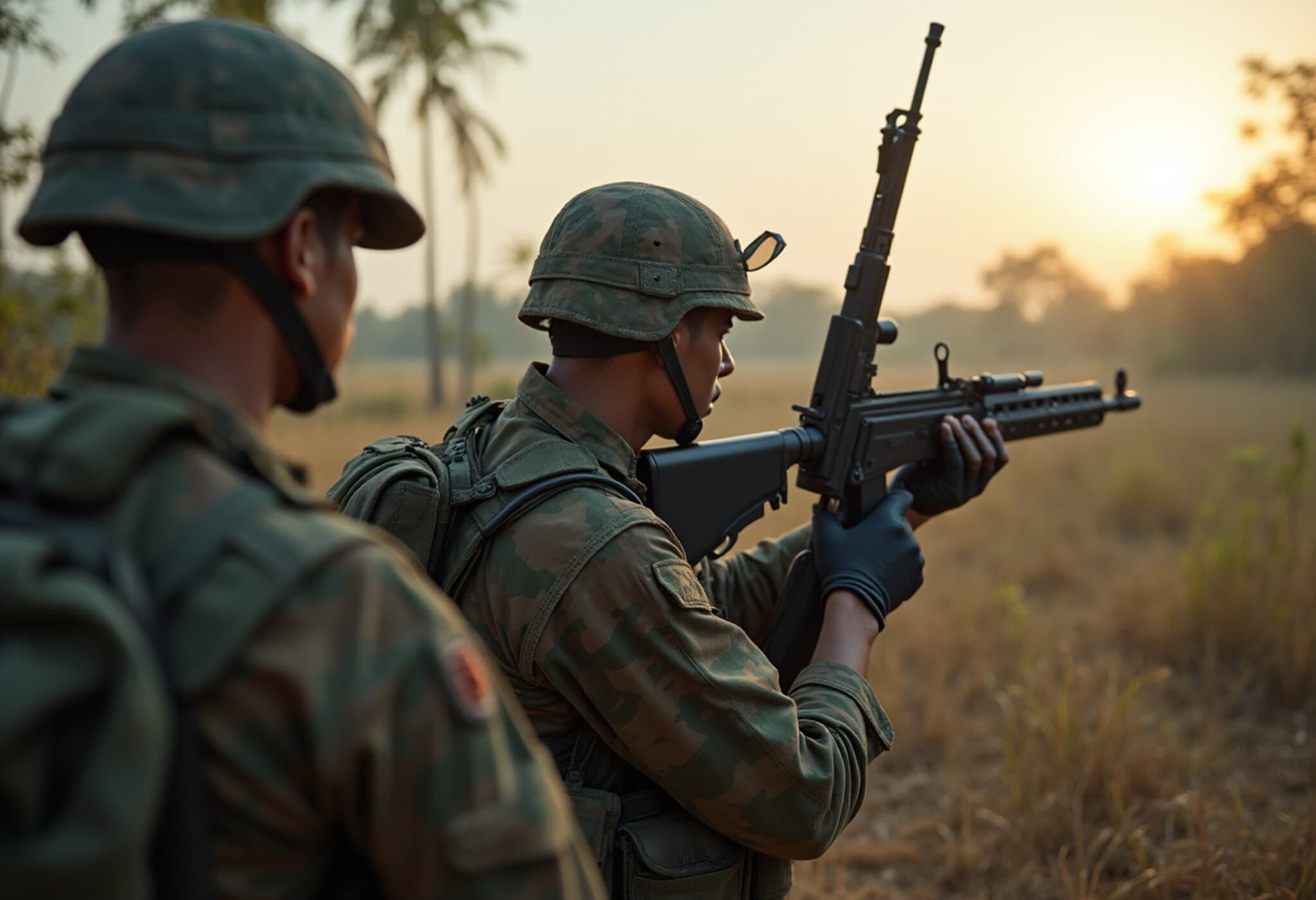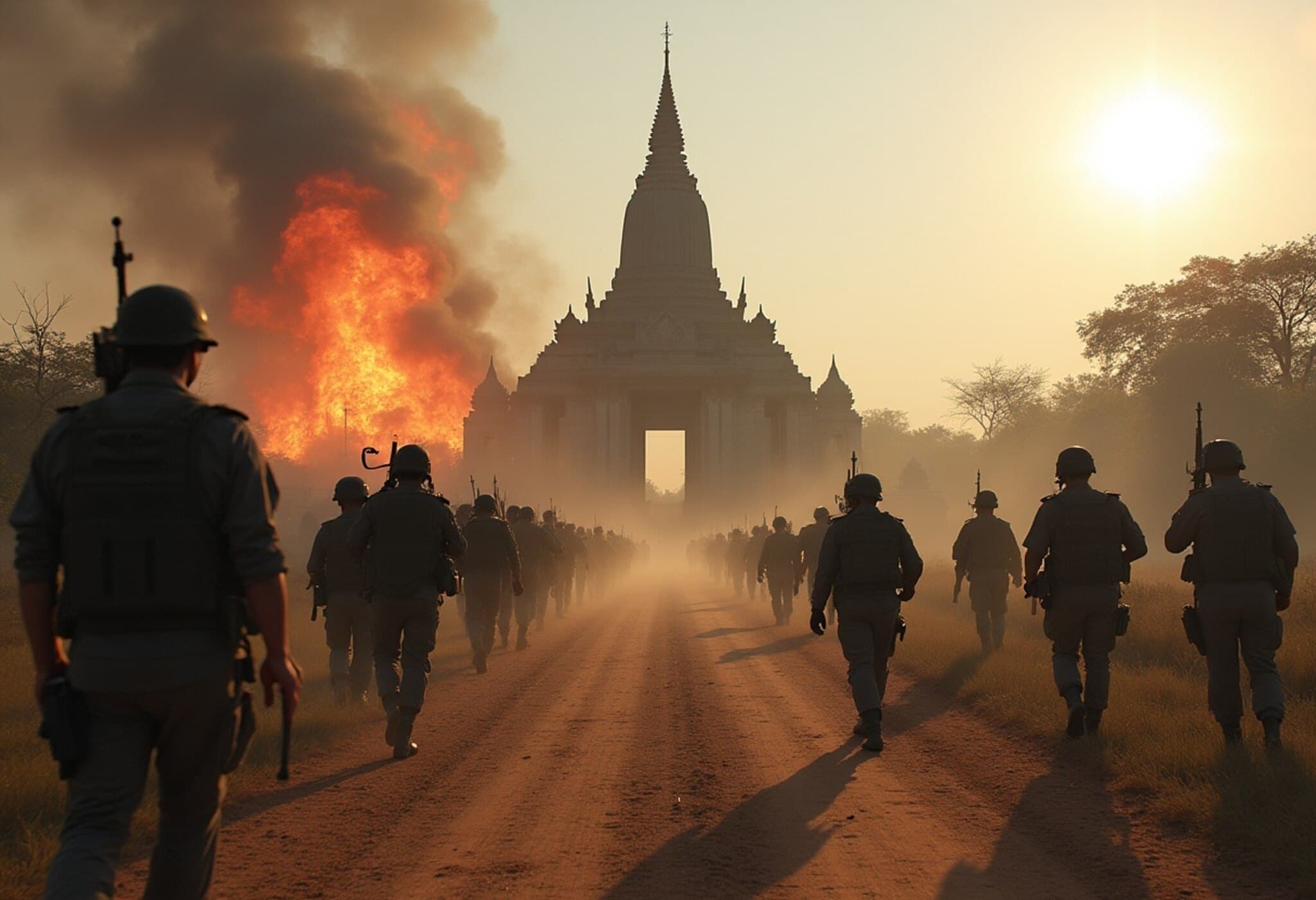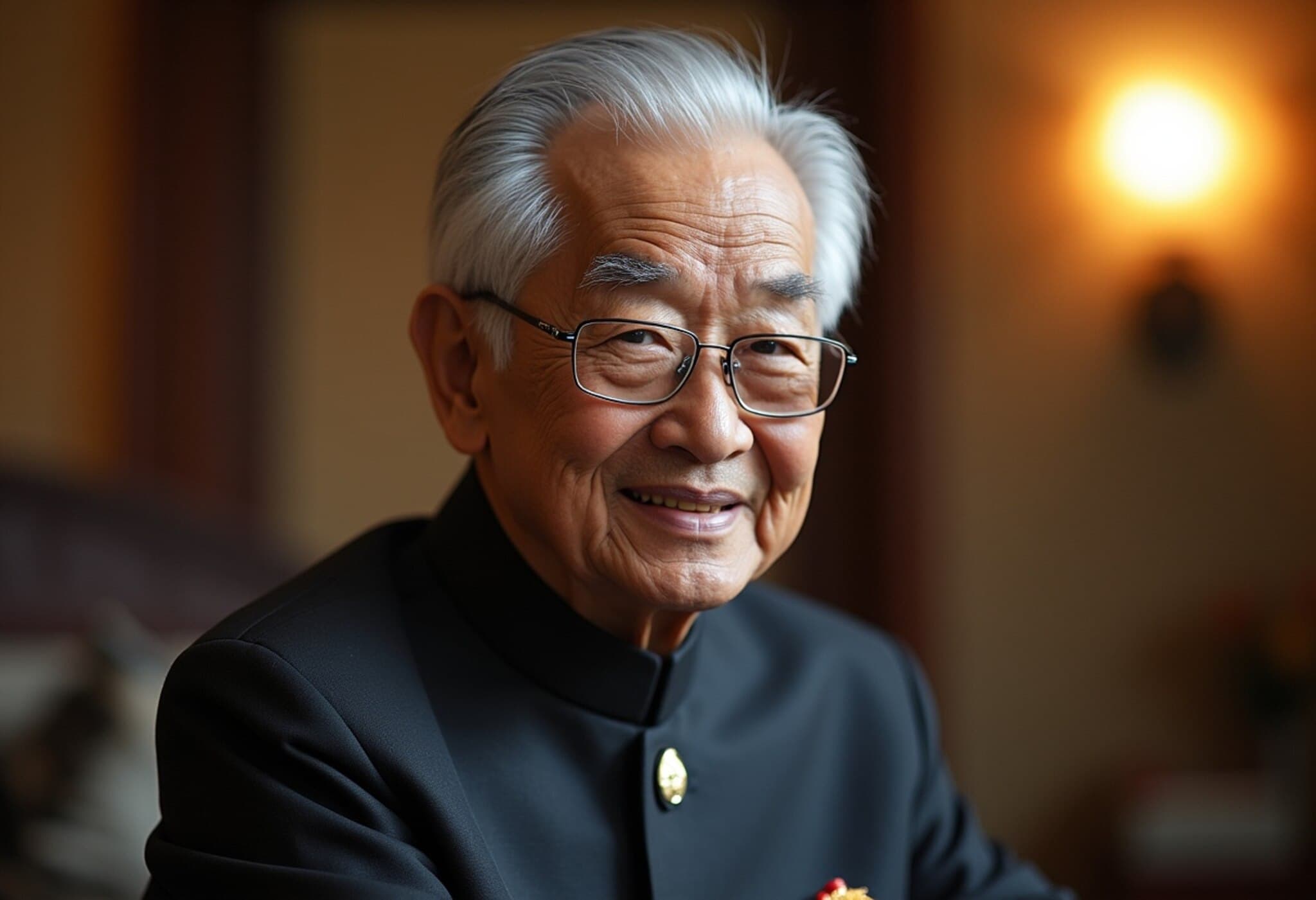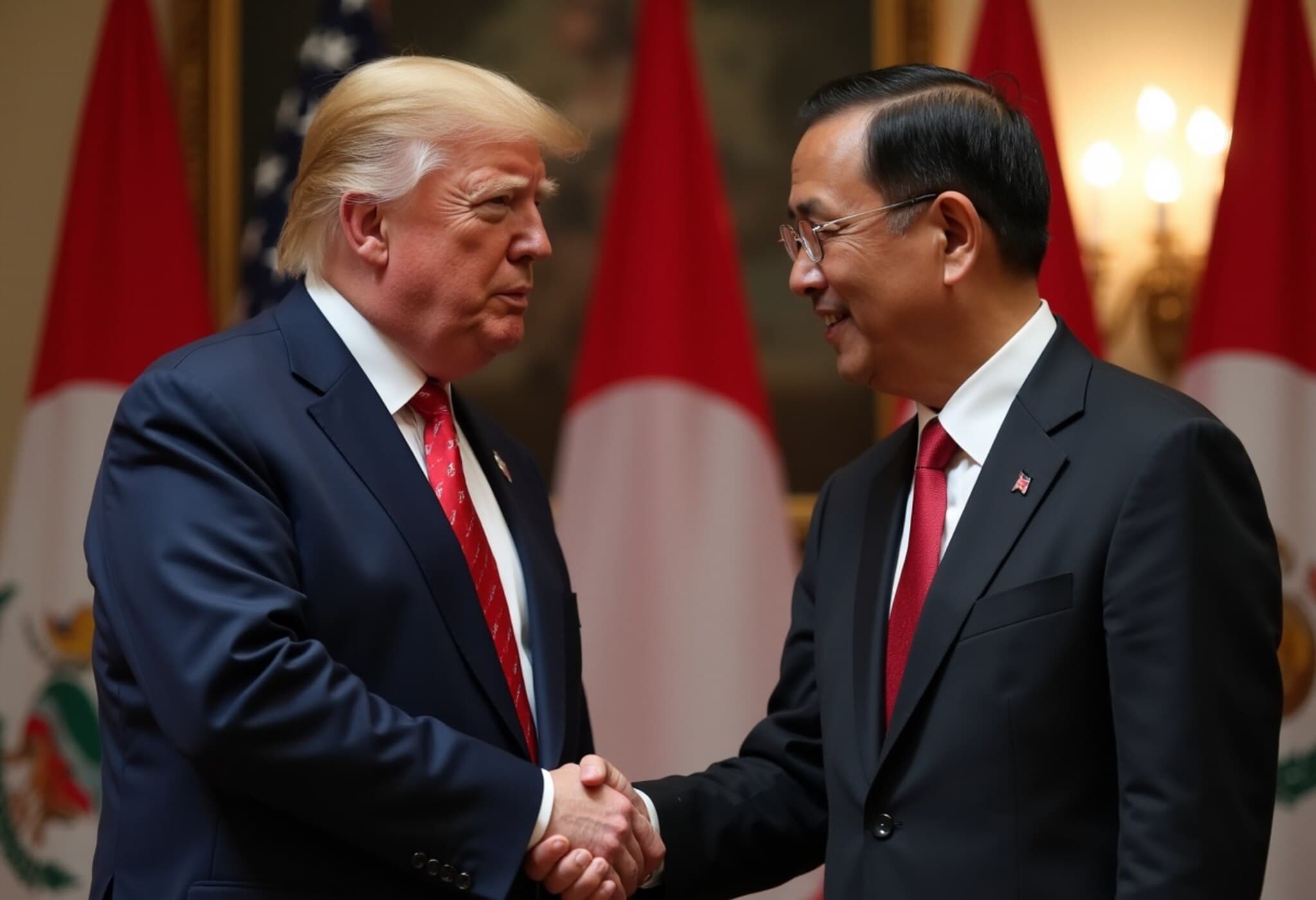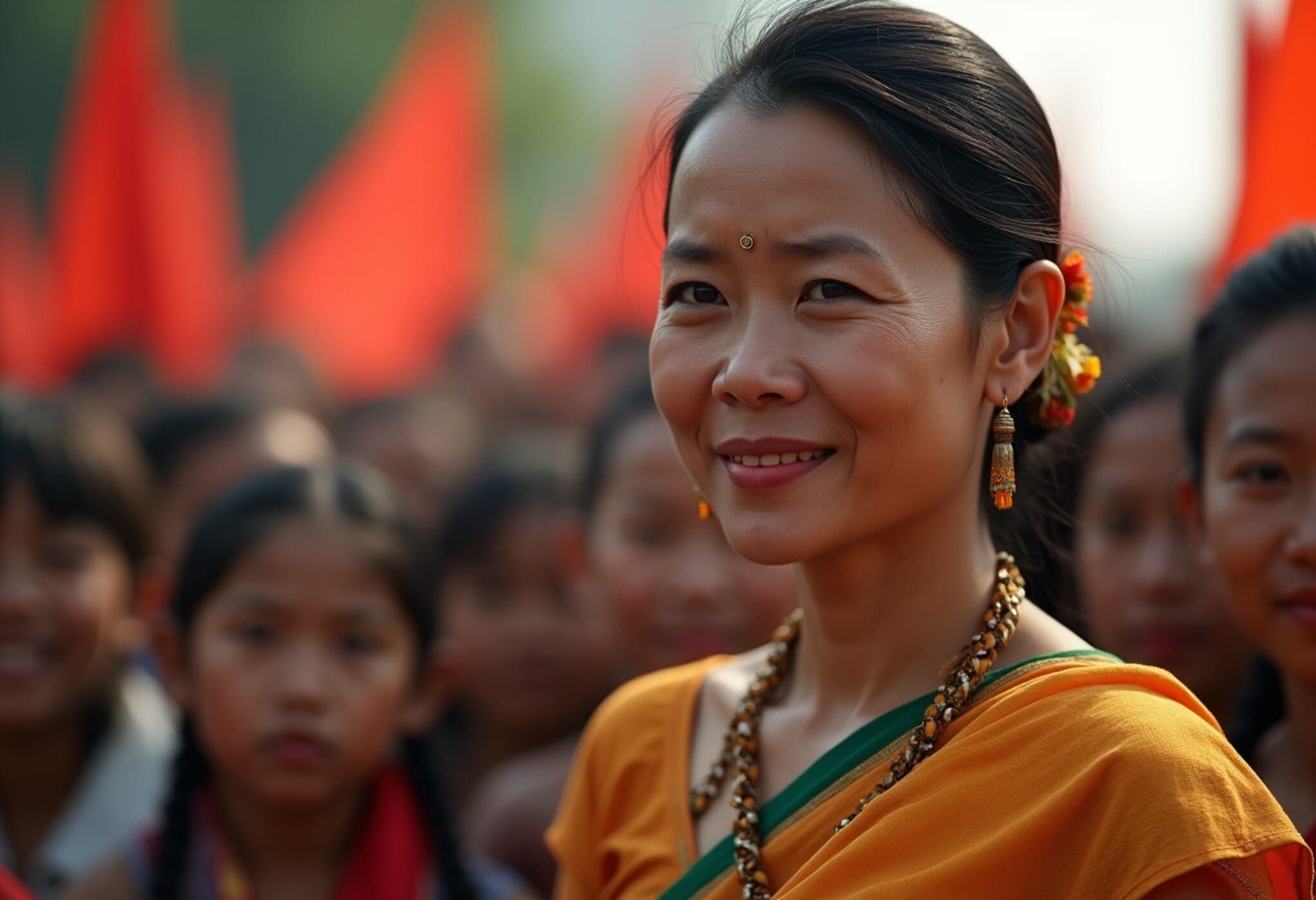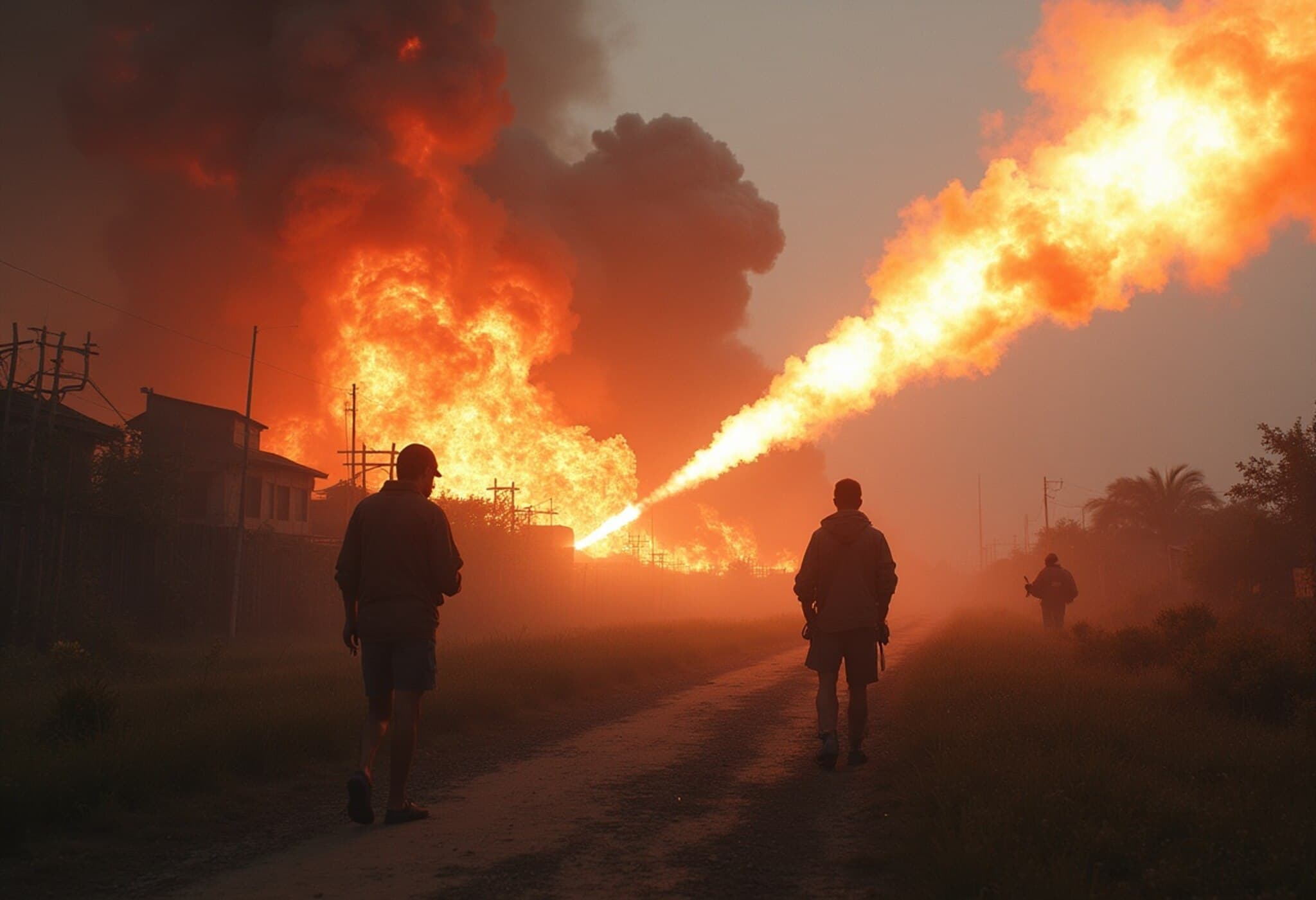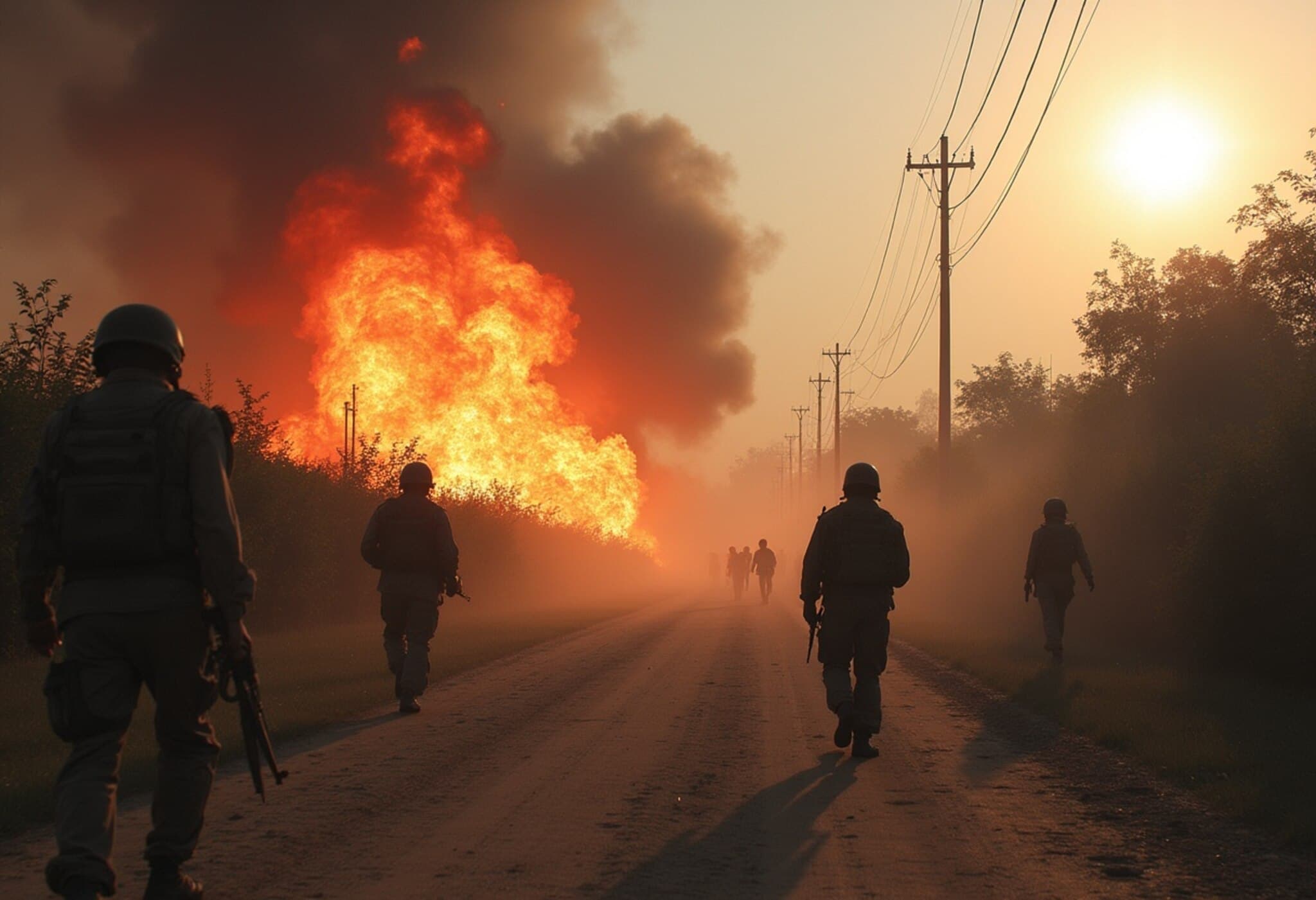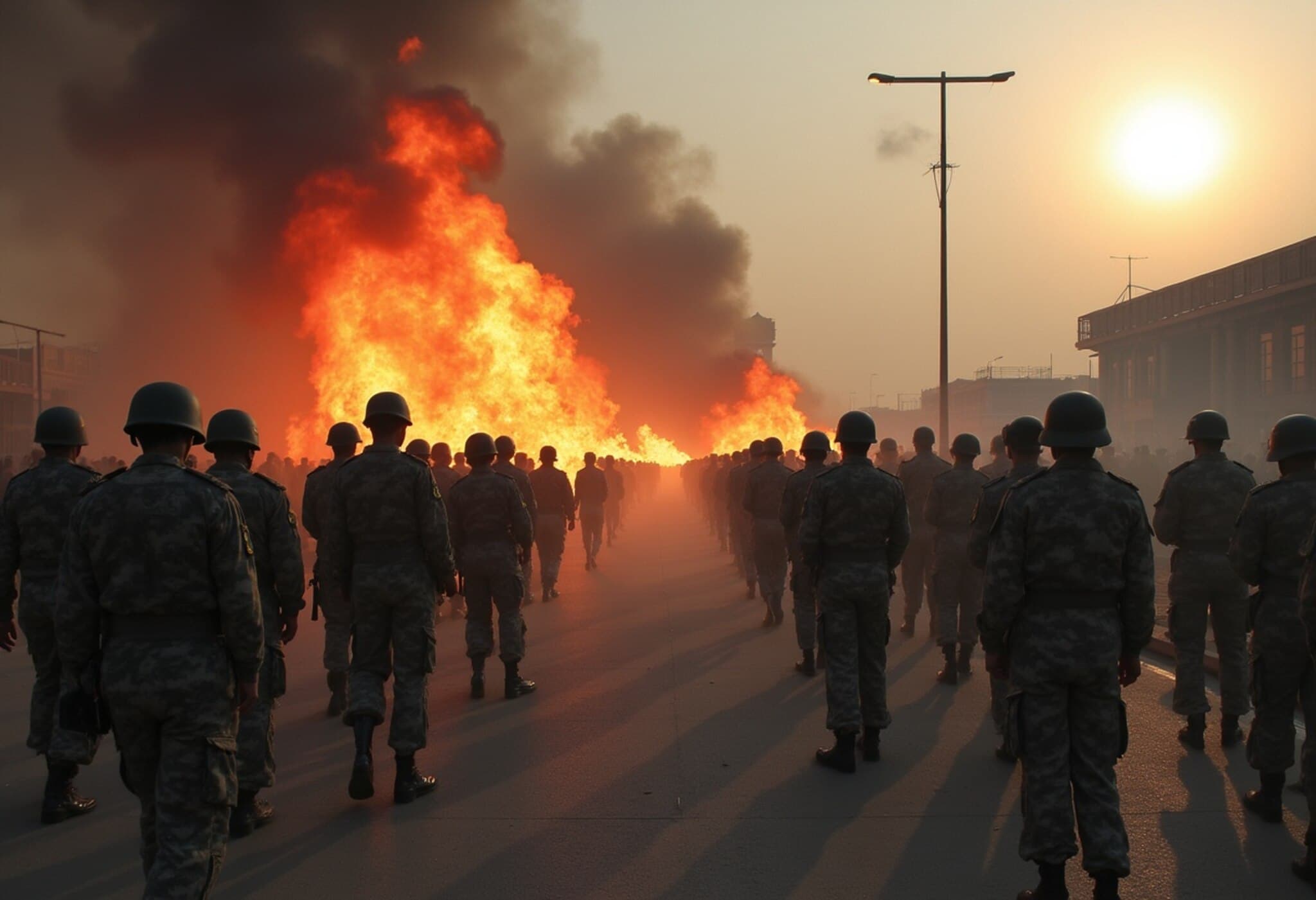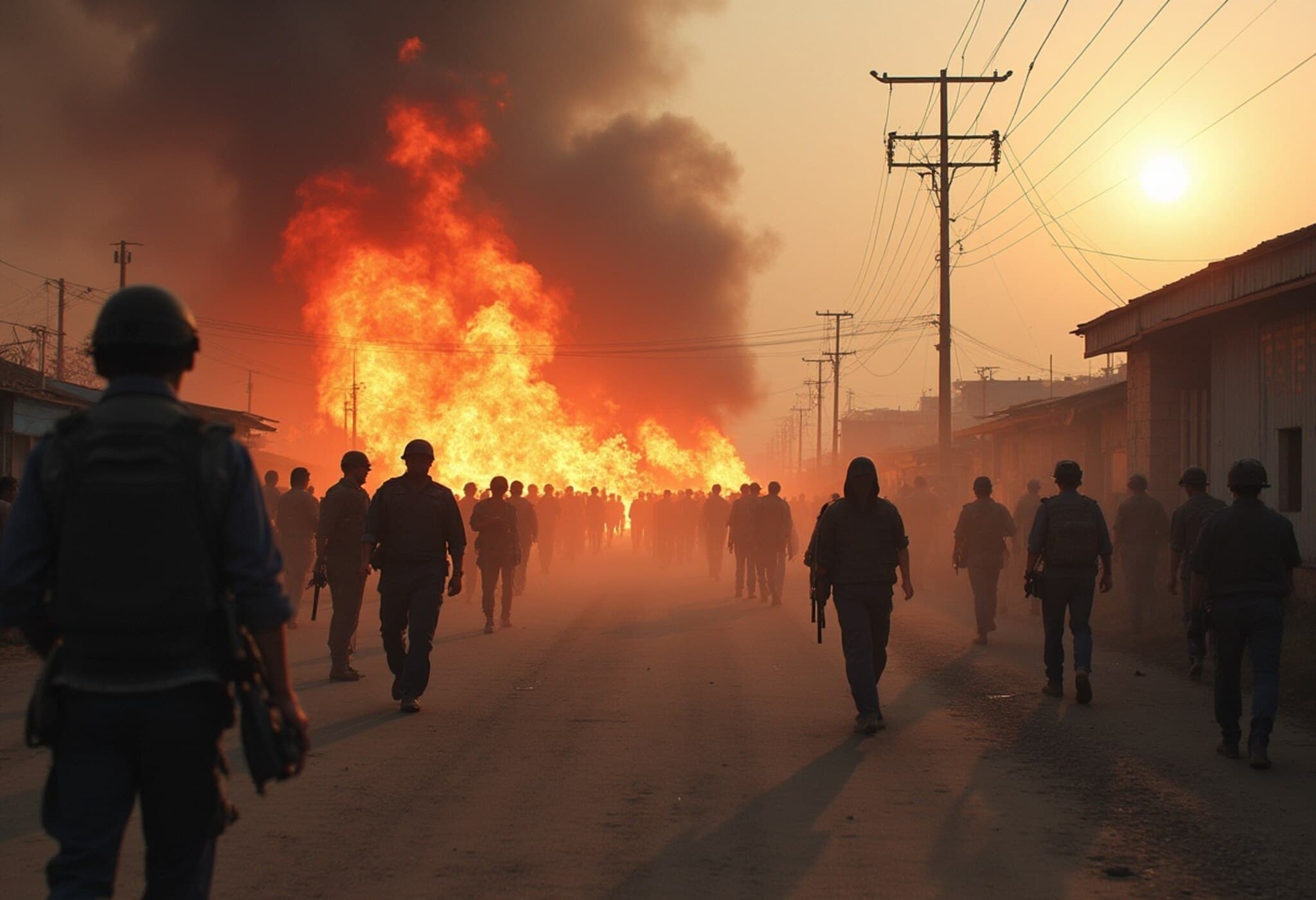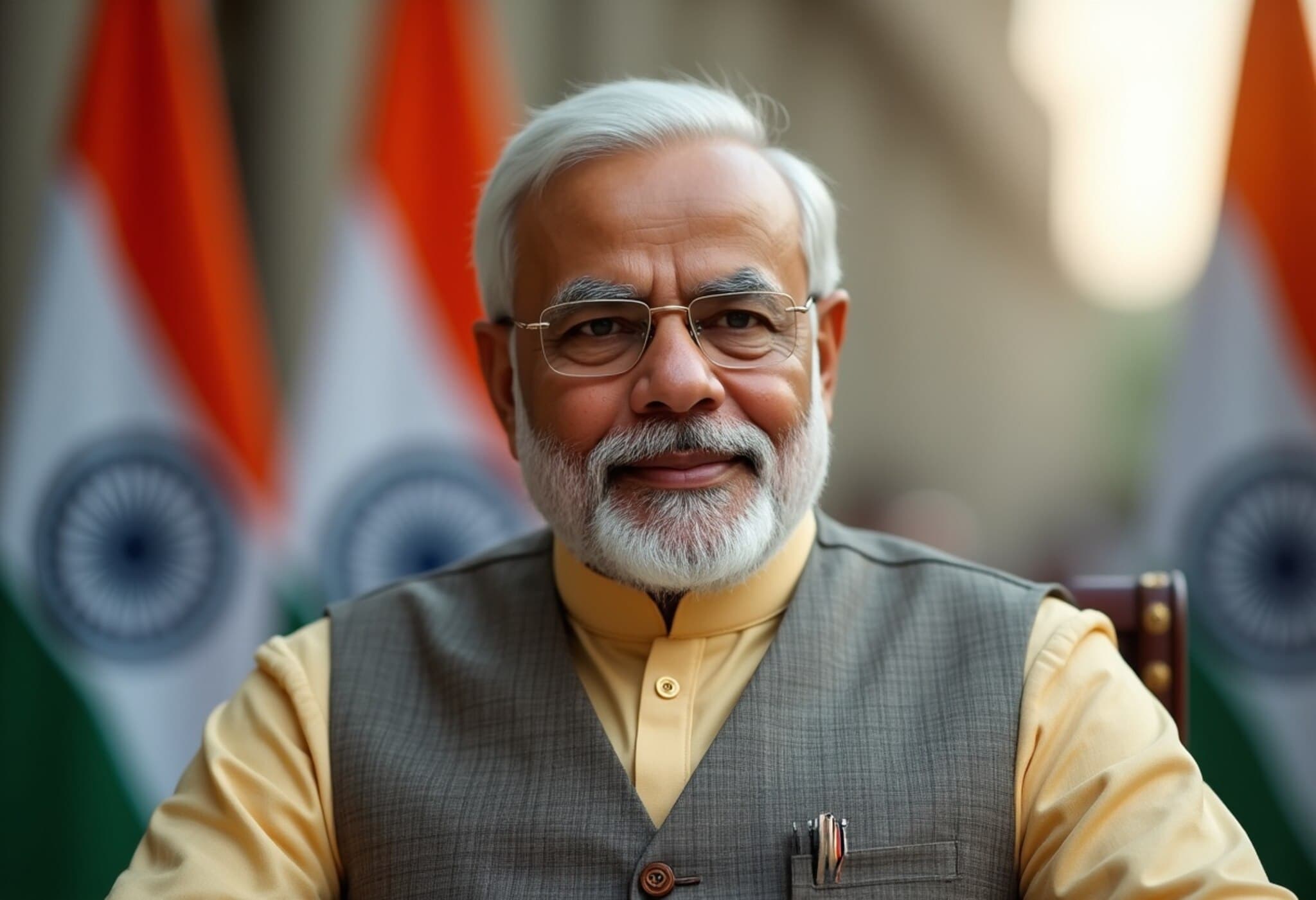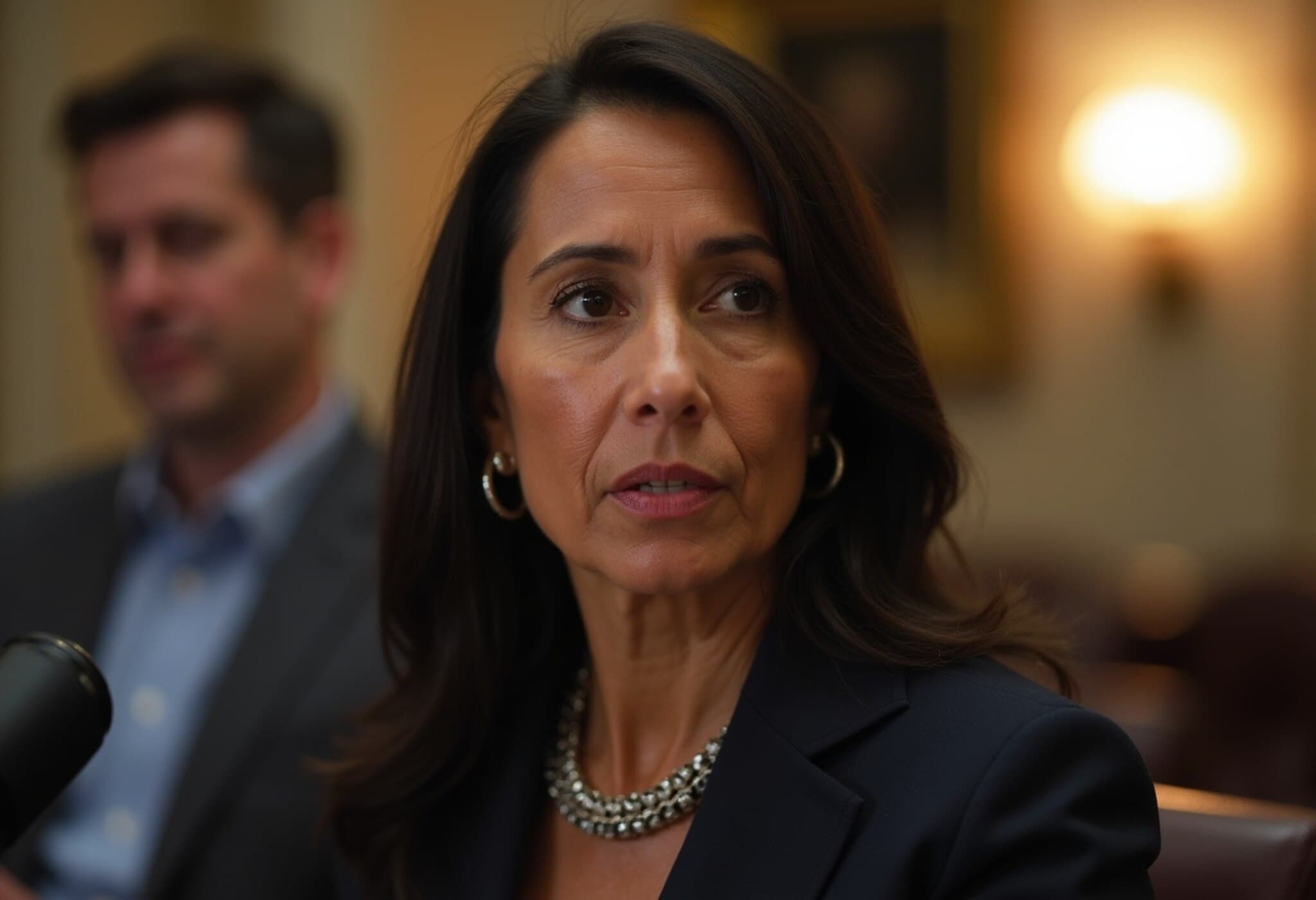Renewed Violence on Thai-Cambodian Border
In a dramatic escalation of tensions between Thailand and Cambodia, armed clashes erupted near the disputed Prasat Ta Muen Thom temple along their shared border on Thursday morning. Soldiers from both nations exchanged gunfire and artillery blasts, heightening fears of a broader conflict. The Thai military reported that three Thai civilians were injured during a rocket strike, underscoring the conflict’s dangerous impact on local communities.
Conflicting Accounts of the Clash
The Cambodian foreign ministry accused Thai forces of initiating the attack, while the Thai military stated they responded defensively after spotting armed Cambodian soldiers and detecting drone activity overhead. The firefight spanned the border provinces of Surin in Thailand and Oddar Meanchey in Cambodia, forcing residents to seek shelter amid the shelling and explosions.
Diplomatic Relations in Tatters
The violence comes amid a rapid deterioration of diplomatic ties. Cambodia downgraded its diplomatic relationship with Thailand and recalled embassy staff from Bangkok just hours before the border clashes. This move was provoked by Thailand’s expulsion of Cambodia’s ambassador and the closure of several border crossings following a landmine incident earlier this week that left five Thai soldiers injured.
Landmine Incident Deepens the Rift
- Thailand claims the landmines were newly laid within its Ubon Ratchathani province.
- Cambodia denies these allegations, asserting the explosion occurred on Cambodian soil in Preah Vihear province.
- Phnom Penh’s Defence Ministry spokesperson, Lt. Gen. Maly Socheata, insists the blast took place within Cambodian territory and describes the Thai claims as "baseless."
The disagreement over the landmine incident not only inflames national grievances but also involves accusations regarding compliance with the Ottawa Treaty banning anti-personnel mines. Thailand insists Cambodia must be held accountable, while Cambodia contends the mines are remnants of past conflicts.
Economic Fallout and Cultural Strains
Bilateral hostilities have spilled over into economic and cultural domains, marking the lowest point in relations between the two countries in over a decade. Cambodia has imposed bans on Thai imports, including fruits, vegetables, electricity, internet services, and even Thai cultural exports such as popular dramas. In retaliation, Thailand has restricted cross-border travel, particularly targeting tourism linked to casino activities, and has suspended certain internet services utilized by Cambodian agencies.
Despite the harsh measures, both nations are reportedly considering limited exemptions for humanitarian reasons, revealing the complex interplay between political posturing and human needs along this contested frontier.
Domestic Political Repercussions in Thailand
The crisis has also cast a shadow over Thailand’s domestic politics. Prime Minister Paetongtarn Shinawatra is facing intense criticism after a leaked phone call with Cambodia’s former leader Hun Sen surfaced. In the conversation, she referred to Hun Sen as "uncle" and reportedly disparaged a high-ranking Thai military commander as merely someone "looking to be cool." This has fueled accusations that the prime minister is undermining the Thai military’s authority, prompting the withdrawal of a key coalition partner from her government.
The Historical Context: Colonial Legacies and Persistent Disputes
The Prasat Ta Muen Thom temple area, a flashpoint in the present-day conflict, is emblematic of long-standing tensions rooted in colonial-era map demarcations made during France’s occupation of Cambodia over a century ago. These historic boundaries have since been contested, often erupting into violent confrontations that reflect deeper nationalism and territorial pride on both sides.
Expert Insight: Navigating a Complex Diplomatic Crisis
Experts highlight that the Thai-Cambodian border conflict represents more than isolated border skirmishes; it embodies the fragile nature of Southeast Asian diplomacy where colonial legacies, national sovereignty, and modern geopolitical interests collide.
American policy analysts point out that the dispute illustrates the challenges in maintaining regional stability in ASEAN without effective conflict resolution mechanisms. Furthermore, the tension disrupts cross-border trade and cultural exchange, affecting millions who live in border communities dependent on peaceful coexistence.
Understanding the nuances beyond the immediate violence — including the economic sanctions, internal political dynamics, and international law implications — is critical for stakeholders aiming to mediate peace and safeguard civilians caught amid the turmoil.
Conclusion: A Region at a Crossroads
The escalating conflict between Thailand and Cambodia is a potent reminder of how unresolved historical disputes can rapidly spiral into crises affecting lives, economies, and governance. As diplomatic efforts falter, the risk of further violence rises, demanding urgent international attention and thoughtful dialogue rooted in mutual respect and legal frameworks.
Editor’s Note
This latest round of hostilities along the Thai-Cambodian border underscores longstanding grievances inflamed by recent provocations and nationalistic politics. Readers should consider the broader geopolitical implications: How might ASEAN and international mediators help defuse tensions? What impact will these hostilities have on regional trade and the daily lives of people in border areas? As this situation evolves, maintaining a balanced perspective and emphasizing humanitarian concerns remains paramount.

